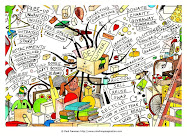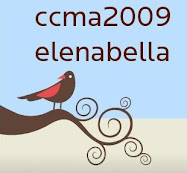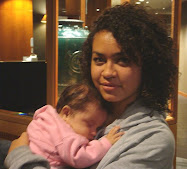
 Nor Hall has written a lot of interesting things, including this blog post, over at Seven Sidekicks, one of the sites of her son-in-law, Sheff Otis. I've pasted in just the beginning of the post; travel over there to read more. ("Emoticons Rule?" Friday, December 5th, 2008). The photo images are tagged with misapplied emotions.
Nor Hall has written a lot of interesting things, including this blog post, over at Seven Sidekicks, one of the sites of her son-in-law, Sheff Otis. I've pasted in just the beginning of the post; travel over there to read more. ("Emoticons Rule?" Friday, December 5th, 2008). The photo images are tagged with misapplied emotions.The post raises that issue we could call "Technology Pros and Cons." Or we could do a SWOT analysis: strengths, weaknesses, opportunities, threats. Both sides of the spectrum exist, positive possibilities, negative drawbacks. You can click over to an article called "So What Does Your Teenager's Brain on Google Look Like?" that refers to the work of Dr. Gary Small, a psychiatrist at UCLA who "argues that daily exposure to digital technologies such as the Internet and smart phones can alter how the brain works."
I want to think about this more, especially as I just met with my friend Jenny to discuss possible topics for future programs for The Art of Mental Health. We keep circling around exactly those topics Dr. Small considers: brain chemistry, aging, the effects of technology, managing rapid change.
Personally, I know that I spend too much time on the computer, and I wonder especially about the waves of energy entering our legs as we hold laptops. I want to balance this more effectively with more time outdoors, more physical exercise, and reading emotions on real people's faces. At the same time, I feel the postitive effects of these technologies every day, especially in their potential to link and engage people. My favorite tag line once again seems to be: "There is always a trade-off."
Anyway, here is a teaser...
The other day I watched my son-in-law playing with his 4 year old son at the table by asking him to imitate a series of wacky expressions: consternation, joy, quizzical-ness. It’s OK – this child can eat and play at once. Some grandchildren can’t. Perhaps their PET scans already look different due to biological causes other than the brain-warping use of computers – though that is coming for all of us if Dr. Small (Star Tribune, Dec. 3, 2008) is right in saying that the Google-brain of teenagers who’ve been on line for their lifetime appears to be less capable of interaction with real time people...







































































































































.jpg)









































































































































.jpg)









































































































1 comment:
I was going to write about Gary Small's work, too, but hadn't worked out what I wanted to say. I'm constantly nagging my 15-year-old to get off her computer because her brain will be misshapen by too much screen time.
Post a Comment